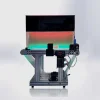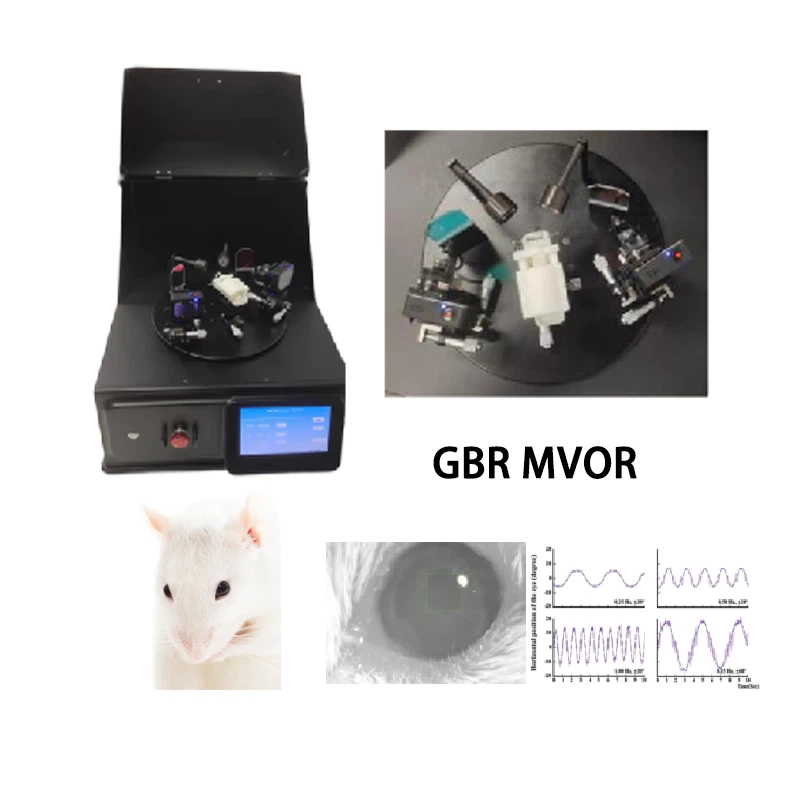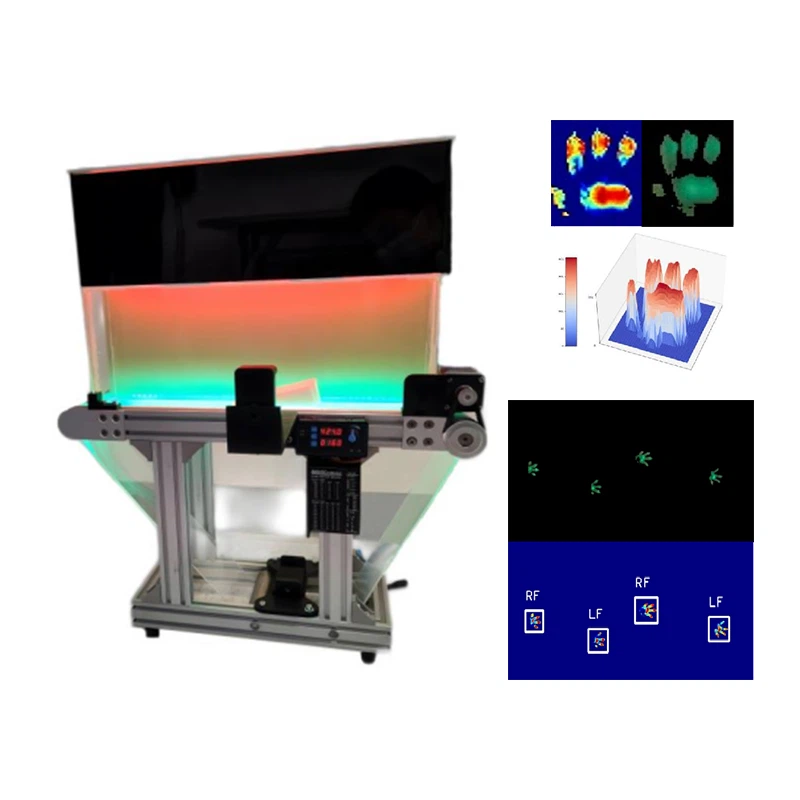- Empty cart.
- Continue Shopping
GBR-Gait
Adjustable speed, Customized length and width, Enclosed camera
PRODUCT PARAMETER
| GBR-Gait Technical parameters | |
| Product size | 55*40*65cm |
| Footprint optical refraction runway system | Length 50cm, can be customized |
| Material: PU | |
| Red LED background light | |
| Reflected light source green LED | |
| Shooting system | Bottom and side shots are bi-directional, allowing simultaneous analysis of experiments |
| Gait and posture of the animal | |
| Video quality: 1080p.120fps, up to 720p, 240fps | |
| Lateral analysis | Changes in knee and ankle angles |
| Changes in limb swing | |
| Relative swing amplitude of limbs, etc | |
| Analysis below | Individual footprint data extraction |
| Multi-footprint data hotspot analysis | |
| Exercise speed judgment and exercise status classification | |
| Footstep area recognition results | |
PRODUCT DESCRIPTION
TheGCell animal treadmill gait analysis system can place the experimental animal on the treadmill and force the experimental animal to walk or run when the track rotates.
In the process, the gait of the experimental animal is recorded through two high-resolution cameras perpendicular to each other, and the system uses the bright refraction technology of footprints to detect and analyze the walking cycle, the corresponding disease in what posture, and then evaluate the degree of its influence by arthritis, nerve damage and other diseases.
PRODUCT FEATURES
GCell animal treadmill gait analysis system becoming increasingly popular due to their numerous advantages. Here are some of the most important features of this product:
1. The treadmill rotation speed is adjustable, up to 2.5m/s
2. The length and width of the runway can be customized for animals such as mice, rats, guinea pigs and rabbits
3. The enclosed camera and lighting system allows gait experiments to be carried out in any lighting environment
4. Shooting and analysis with both lower and lateral directions
PRODUCT APPLICATION
GCell animal treadmill gait analysis system are widely used in Arthritis, Parkinson’s disease, Alzheimer’s disease, neurodegeneration, drug toxicity, neuropathy, myelitis, osteoarticular aging, Huntington’s disease, amyotrophic lateral sclerosis, etc.


























